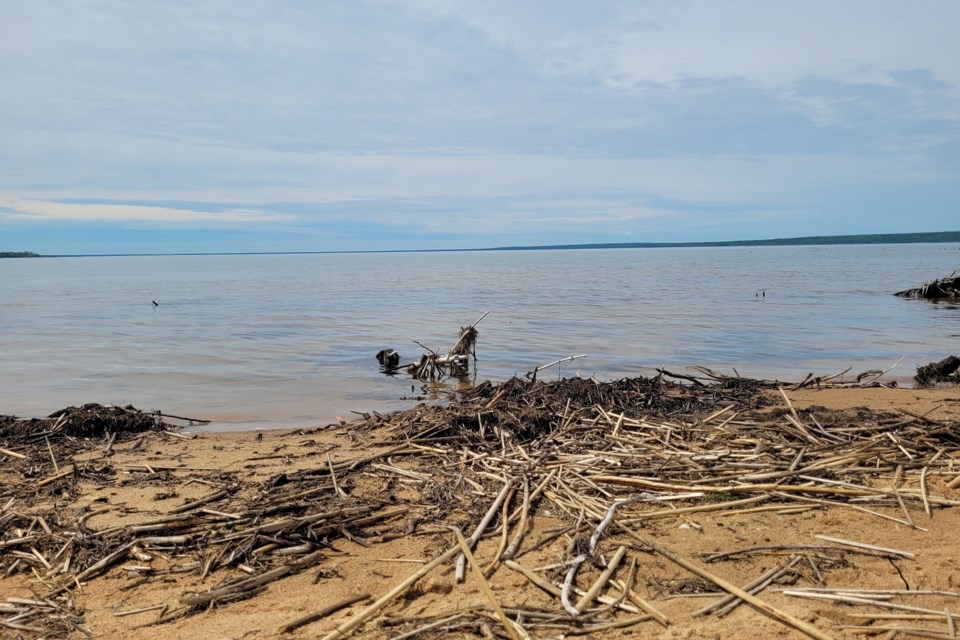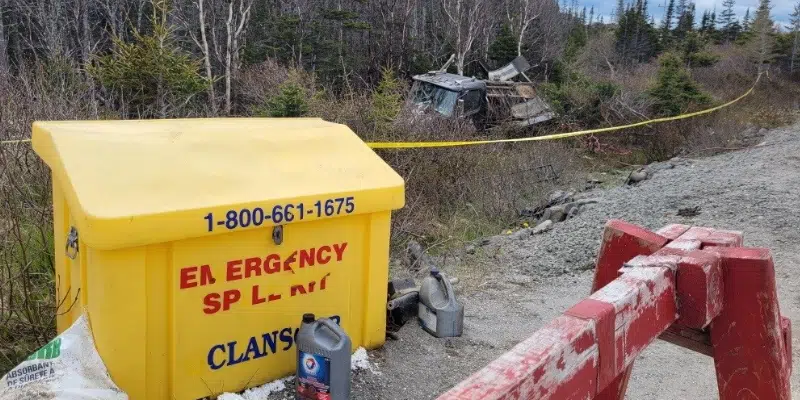L’Anse aux Meadows Road near Gull Pond is down to one lane due to an oil spill.
St. Anthony RCMP say that clean-up efforts continue to deal with a massive amount of fuel that spilled when an oil tanker tipped over Friday.
It is unknown when the process will be completed.
ONTARIO
Sheen from oil spill starting to dissipate: Ministry of the Environment
Echo Bay's mayor says calling a state of emergency was necessary as the community faces water shortages due to the spill
Kenneth Armstrong
06/13/2022

Shore of the Lake George Marsh at the mouth of the Echo River.
Carol Martin/SooToday
Echo Bay’s mayor says Monday’s state of emergency called in the wake of last week’s oil spill on the St. Marys River is necessary as the small community is running out of clean drinking water.
The community’s water treatment plant was shut down soon after the spill was discovered, said Mayor Lynn Watson.
“We were told to shut down our systems when they identified the spill in the river,” said Watson. “Of course, we are unable to start it up until we get assurances from the Ministry of the Environment and the Algoma health unit.”
He said nothing like it has happened in his 34 years as mayor of the community just east of Sault Ste. Marie.
In the meantime, Echo Bay is warehousing clean water in its iconic water tower and a holding facility at its water treatment plant. Those storage methods can hold about four days’ worth of water at normal usage.
“We have asked our residents to cut back on the use of water, but even that — the necessities of life require you to use water — so we are just making sure by bringing in water that we have a clean supply of fresh water for everyone,” said Wheeler.
The Environmental Centre in Echo Bay treats water for about 600 residents in the town.
Currently, that clean water is being brought in from nearby Bruce Mines, and Wheeler said the community has been in talks with Sault Ste. Marie to bring in more.
Sault Ste. Marie's drinking water was not affected by the spill because its intake is near Gros Cap, upriver from where the incident occurred.
“In case this goes on because there is no light at the end of the tunnel as of yet, we have to keep bringing water in,” Watson said. “The longer this goes on, the more cost there is. Our little municipality really can’t afford the additional costs we hadn’t counted on.”
“The sooner we can get the okay to start our system back up, the better it will be for all of us,” he added. “We shut it down very shortly after they identified the spill, so we haven’t had any contaminants in our system, but we can’t turn it back on until they make sure there are no contaminants out where our water intake is.”
By declaring a state of emergency, Watson hopes to be able to recoup some of those costs from the provincial government.
“By declaring a state of emergency, it opens the doors for provincial funding and assistance if this goes on for an extended period of time or if we need to bring in more trucks to haul water,” he said.
On Monday, Ministry of the Environment, Conservation and Parks spokesperson Gary Wheeler told SooToday that the visible oil on the river is beginning to disperse.
”As of June 13, there are no reports of any impacts to fish or birds from the oil spill,” said Wheeler.
Algoma Steel is currently engaged in daily monitoring to assess the clean-up.
”In addition to implementing clean-up and monitoring plans, the ministry is requiring that Algoma Steel prepare and submit a report that outlines the cause of the spill and preventative measures to prevent a re-occurrence,” said Wheeler.

